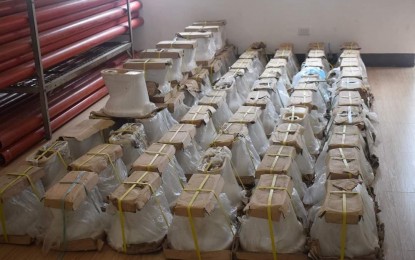
ILOILO – The Provincial Health Office (PHO) pressed the need for political will for the province to achieve a zero open defecation (ZOD) status. PHO chief Dr. Patricia Grace Trabado said basic toilet facilities should be at every Ilonggo household and this campaign needs the support of local government officials.
According to PHO’s data as of Aug. 15, 19 towns have secured all of their villages’ zero open defecation status out of the 43 local government units (LGUs) in the province. These municipalities include Badiangan, Banate, Barotac Viejo, Batad, Bingawan, Igbaras, Janiuay, Lemery, Miag-ao, Mina, New Lucena, Oton, Passi City, Pototan, San Joaquin, San Miguel, San Rafael, Tigbauan, and Tubungan.
The remaining LGUs have yet to pass the level 1 of ZOD status.
Trabado said the PHO is continuing with its province-wide campaign until all households have access to toilets.
She, however, said that new households arise each month and the PHO has to assure that new households practice proper human waste disposal.
“Every year or every month may nagatuhaw nga bag-o nga balay. Kung subong naghambal kita nga 95 percent na sang mga barangays naton ang ZOD, pagkasunod nga bulan may bag-o nga gatuhaw nga balay kaisa makibot ka lang ara na lima na sila gali kabilog,” Trabado explained.
The success of the campaign, according to the PHO chief, needs the support of local government officials.
Trabador said barangays and the municipalities should establish ordinance that requires new houses to secure toilets.
“Tani sa sustainability may political will may magwa nga ordinansa sa barangay level kag sa banwa nga kada may bag-o nga balay, dapat updan sang toilet,” dugang ni Trabado.
She also stressed that safe toilets are crucial for public health and this will free residents from any viral and bacterial infections. Open defecation could expose people to diarrhea and other water-borne diseases.
“Siempre kung amo ni subong dalagan niya daw di mo ma-reach ang target kay may nagatuhaw nga bag o nga balay ti kung wala sang suporta ti forever indi naton ma-achieve ang level 1,” Trabador added.
She also said that PHO will continue its campaign in every locality in the province to fully achieve a ZOD status.
According to the PHO, lack of toilets and proper bowel disposal facilities in rural areas in the province had resulted in health problems among residents. Improper disposal of human waste can also contaminate food and water, which will cause diseases among people when consumed. Consuming contaminated food and water can also cause death as consequences of viral and bacterial diseases, such as diarrhea, can endanger one’s life.
Globally, the World Health Organization warned that much remains to be done in improving sanitation and hygiene, particularly in developing countries like the Philippines.
At least one out of seven people in the planet, or about 1 billion people, practices open defecation. Ninety percent of them, or nine out of 10, come from rural areas.
About 2.5 billion people also lack access to improved sanitation, contributing to the spread of infectious and fecal-borne diseases like diarrhea. In the Philippines, at least 7 million people have no access to toilets and thus are more prone to defecation./PN



